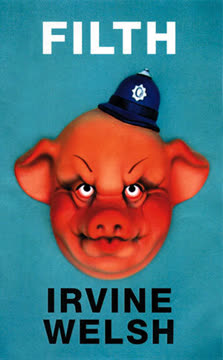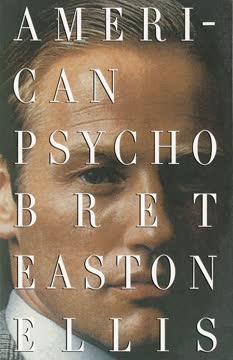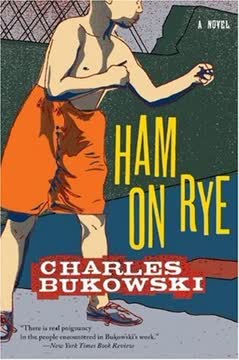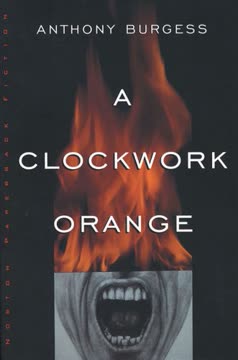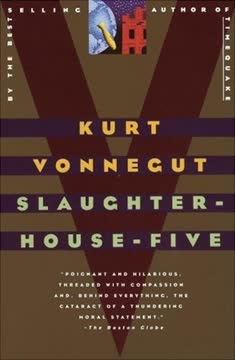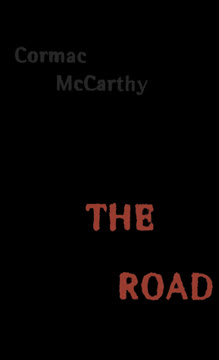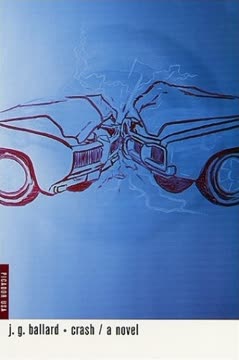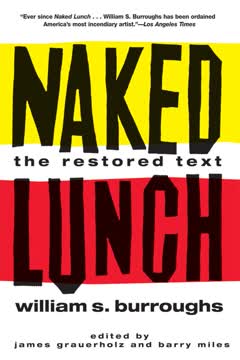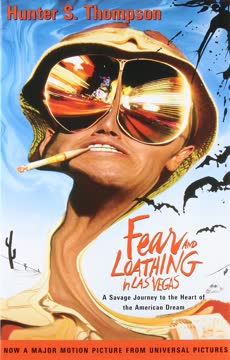Plot Summary
Stupid Little Boy's Shadow
Victor Mancini's story begins with a cold, humiliating childhood memory: his mother, Ida, traces his shadow on a cliff, promising he'll grow into the outline she's designed for him. This formative moment, full of myth and pain, sets the tone for Victor's life—a cycle of hope, disappointment, and the desperate search for meaning. Ida's lessons are harsh, teaching Victor that art and identity are born from suffering, not happiness. The boy's belief in a bright future is repeatedly crushed by reality, yet he clings to the idea that suffering will someday be worth it. This chapter establishes Victor's lifelong struggle with self-worth, the burden of parental expectation, and the seeds of his addiction to being saved and saving others.
Legends in Room 234
Victor attends sexaholics meetings, surrounded by people who are the living embodiment of urban legends—each with their own compulsions and shame. The group is a microcosm of society's hidden desires and humiliations, where everyone is both a joke and a human being. Victor exploits the meetings for sexual opportunities, cycling through partners like Nico, Tanya, and Leeza, using sex as both anesthesia and affirmation. The meetings blur the line between recovery and relapse, as Victor's addiction is less about sex and more about the need for connection, validation, and escape from loneliness. The chapter exposes the absurdity and tragedy of compulsive behavior, and the ways people seek meaning in their own brokenness.
Mother's Mind, Son's Mask
Victor visits his mother in a care facility, where her mind is slipping away. To connect with her, he pretends to be various people from her past—her lawyers, defenders, and friends—since she no longer recognizes him as her son. This role-playing becomes a ritual, a way for Victor to maintain a relationship with his mother and avoid confronting his own pain. Dr. Paige Marshall, a new doctor at the facility, offers hope for Ida's recovery, but Victor is skeptical and conflicted. The chapter explores the shifting boundaries of identity, the pain of watching a loved one fade, and the desperate measures we take to preserve connection, even if it means living a lie.
Colonial Dunsboro's Outcasts
Victor and his best friend Denny work as historical reenactors in Colonial Dunsboro, a living history museum populated by misfits and addicts hiding from the real world. Denny's repeated punishments in the stocks become a metaphor for addiction and recovery, while Victor's cynicism masks his own need for belonging. The town is a parody of authenticity, where everyone is pretending—just as Victor pretends in his own life. Their friendship is a mix of codependency, competition, and mutual rescue, echoing the larger themes of the novel: the search for meaning, the comfort of routine, and the impossibility of true escape from oneself.
Pornography and Pilgrimage
Victor's early fascination with pornography is less about sex and more about the courage and shamelessness of those who expose themselves. He admires the confidence of a man who can pose for humiliating photos, seeing in it a kind of enlightenment—a freedom from the need for approval or love. This becomes Victor's ideal: to be so exposed that he no longer needs to hide, to be so seen that he no longer needs attention. The chapter delves into the paradox of seeking salvation through humiliation, and the ways in which shame and pride are intertwined in the human psyche.
Invented Selves, Invented Stories
As Ida's mind deteriorates, Victor keeps inventing new identities for himself to match her shifting memories. He meticulously records the details of each persona, trying to keep up with her reality. The act of inventing selves becomes a way to avoid his own pain and guilt, but also a means of survival. Paige Marshall proposes a radical treatment to restore Ida's mind, but Victor is ambivalent—torn between wanting to save his mother and wanting to keep her dependent on him. The chapter explores the fluidity of identity, the burden of caretaking, and the longing for absolution.
Choking for Love
Victor supports himself and his mother by faking choking incidents in restaurants, allowing strangers to "save" him and then exploiting their gratitude for money and emotional support. This scam is both a survival strategy and a twisted form of intimacy—Victor becomes the object of others' heroism, creating a network of people who feel responsible for him. The act is a metaphor for his entire life: gaining power by being weak, creating love through dependency, and turning victimhood into a performance. The chapter exposes the transactional nature of relationships and the human need to feel important.
St. Anthony's Human Ruins
St. Anthony's Care Center is a microcosm of decline, where the elderly and damaged are trapped by their own histories and delusions. Victor becomes a scapegoat for the residents' unresolved traumas, accepting blame for every crime and hurt in their lives. This role is both penance and power—by absorbing their guilt, he gives them peace, but remains burdened himself. The chapter explores the inevitability of decay, the persistence of memory, and the ways in which we seek forgiveness and meaning at the end of life.
Mommy's Secret Signals
Flashbacks reveal Ida's pattern of reclaiming Victor from foster care, using secret signals and acts of sabotage to disrupt the order of the world. Her "beauty industry terrorism" and coded messages teach Victor to distrust authority and embrace chaos. Ida's actions are both protective and destructive, instilling in Victor a sense of specialness and alienation. The chapter highlights the legacy of parental dysfunction, the allure of rebellion, and the difficulty of distinguishing love from harm.
Jamais Vu and False Fathers
Victor's quest to understand his origins leads him to his mother's diary, written in Italian, and to a series of revelations about his parentage. Paige Marshall translates the diary, suggesting that Victor may be the product of a bizarre fertility experiment involving a religious relic. The truth is elusive, complicated by Ida's delusions and Victor's own need for identity. The chapter explores the longing for certainty, the pain of ambiguity, and the ways in which our stories about ourselves shape our reality.
Confessions and Completions
Victor's willingness to accept blame for others' pain becomes a form of therapy for the residents of St. Anthony's, but it does not heal his mother or himself. Denny, meanwhile, seeks purpose by collecting rocks—each one a marker of sobriety and effort. Their parallel quests for meaning and absolution highlight the limits of confession and the impossibility of true closure. The chapter examines the tension between self-sacrifice and self-destruction, and the need to find value in the process rather than the outcome.
The Victor Mancini Telethon
Victor's choking scam evolves into a full-fledged telethon, with hundreds of "heroes" supporting him financially and emotionally. The scheme becomes unsustainable, as Victor struggles to keep up with the demands of his extended surrogate family. The chapter satirizes the culture of charity, the commodification of suffering, and the endless cycle of need and rescue. Victor's life becomes a pyramid scheme of dependency, mirroring the larger social systems that promise salvation but deliver only temporary relief.
Denny's Rocks, Victor's Walls
Denny's rock-collecting obsession culminates in the construction of a massive, unauthorized stone structure—a monument to his sobriety and effort. Victor, meanwhile, is consumed by his own obsessions and the collapse of his scams. The two friends' parallel projects reflect their desire to leave a mark, to create something lasting in a world of impermanence. The chapter explores the tension between creation and destruction, the need for tangible proof of existence, and the futility of seeking permanence in a transient world.
The Miracle of Pudding
In a final, desperate attempt to save his mother, Victor tries to feed her pudding, only to accidentally cause her death. The scene is a dark parody of the resurrection miracle, exposing the limits of love, the dangers of delusion, and the inevitability of loss. Paige Marshall's own instability is revealed, and Victor is left alone, stripped of his illusions and burdened by guilt. The chapter confronts the impossibility of saving others, the pain of letting go, and the need to accept our own limitations.
The Martyrdom of Saint Me
Victor's scams and confessions catch up with him, leading to public exposure, arrest, and the collapse of his carefully constructed persona. The people who once idolized him turn on him, and his sense of self is shattered. The chapter explores the dangers of martyrdom, the fickleness of public opinion, and the emptiness of identity built on performance and deception. Victor is forced to confront the reality of his own insignificance and the futility of seeking salvation through others.
The Fourth Step's End
In the aftermath of his mother's death and his own unmasking, Victor completes his fourth step—the moral inventory required by his recovery program. The act of confession is both cathartic and hollow, offering no easy answers or redemption. Paige Marshall disappears, Denny's monument is destroyed, and Victor is left to face the consequences of his actions. The chapter suggests that true change is possible only through acceptance, humility, and the willingness to let go of illusions.
Inventing the World
The novel ends with a return to the theme of invention: Victor's mother once told him to draw his own map, to invent his own world. In the ruins of Denny's castle, surrounded by friends and strangers, Victor realizes that meaning is not found in salvation or permanence, but in the act of creation itself. The future is uncertain, the past is irretrievable, but the possibility of invention remains. The final image is one of tentative hope—a group of misfits, in the middle of nowhere, struggling to build something new from the rubble of their lives.
Characters
Victor Mancini
Victor is a failed medical student, sex addict, and professional scam artist whose life is defined by his mother's chaotic love and his own compulsive need to be saved and to save others. He is a master of role-play, constantly reinventing himself to fit the expectations of those around him—his mother, his lovers, his "heroes." Victor's psychological landscape is shaped by shame, guilt, and a longing for connection, but he sabotages intimacy through manipulation and self-destruction. His journey is one of reluctant self-discovery, as he confronts the emptiness of his performances and the impossibility of true redemption. Ultimately, Victor is both a victim and an architect of his own suffering, searching for meaning in a world that offers only fleeting moments of grace.
Ida Mancini (The Mommy)
Ida is Victor's mother, a brilliant but unstable woman whose love is both nurturing and destructive. Her life is a series of rebellions—against authority, convention, and the constraints of reality. She kidnaps Victor repeatedly, teaching him to distrust the world and embrace chaos. Ida's mental decline is both a source of pain and a catalyst for Victor's self-examination. Her legacy is one of confusion, guilt, and the impossible burden of living up to her expectations. Psychoanalytically, Ida embodies the archetype of the devouring mother—her love is inescapable, her absence unbearable, and her influence indelible.
Denny
Denny is Victor's best friend and fellow sex addict, whose journey from compulsive masturbation to rock-collecting and monument-building mirrors Victor's own search for meaning. Denny is loyal, naive, and perpetually in recovery—his obsessions shift from sex to sobriety to construction, each new project a way to fill the void. His relationship with Victor is a mix of camaraderie, competition, and mutual rescue, reflecting the novel's themes of codependency and the longing for significance. Denny's development is marked by small victories and inevitable setbacks, but his persistence offers a counterpoint to Victor's cynicism.
Dr. Paige Marshall
Paige is a doctor at St. Anthony's who becomes both a potential savior and a source of confusion for Victor. She offers hope for Ida's recovery and becomes the object of Victor's obsession, but her own stability is questionable. Paige's shifting roles—as healer, lover, and possible time traveler—mirror Victor's own fluid identity. Her relationship with Victor is fraught with ambiguity, desire, and the impossibility of true connection. Psychoanalytically, Paige represents the unattainable ideal—the promise of salvation that is always just out of reach.
Nico
Nico is one of Victor's regular partners from the sexaholics meetings, embodying the transactional, impersonal nature of Victor's relationships. She is both a source of pleasure and a reminder of Victor's inability to form lasting bonds. Nico's presence highlights the emptiness of compulsive behavior and the ways in which addiction substitutes for intimacy.
Tanya
Tanya is another of Victor's rotating partners, notable for her predictability and the ritualized nature of their encounters. Her presence underscores the mechanical, anesthetic quality of Victor's sex life, and the ways in which routine can become both comfort and prison.
Leeza
Leeza is a sexaholic whose physical deterioration mirrors the emotional and spiritual decay of the group. Her relationship with Victor is transactional and devoid of genuine connection, serving as a reminder of the costs of addiction.
Beth (Cherry Daiquiri)
Beth begins as a stripper with a cancery mole, but becomes Denny's partner and collaborator in his monument-building project. Her transformation from object to subject mirrors Denny's own growth, and their relationship offers a glimmer of hope for change and connection.
Gwen
Gwen is a woman Victor meets in a bookstore, whose elaborate rape fantasy exposes the complexities of desire, consent, and the search for meaning through transgression. Her encounter with Victor is both farcical and revealing, highlighting the ways in which fantasy and reality collide.
St. Anthony's Residents (Eva, Mrs. Novak, etc.)
The residents of St. Anthony's are a chorus of the past—each trapped in their own stories, seeking absolution and connection. They project their guilt and pain onto Victor, who becomes a scapegoat and confessor. Their presence underscores the novel's themes of memory, regret, and the longing for completion.
Plot Devices
Nonlinear Narrative and Flashbacks
The novel unfolds in a nonlinear fashion, with frequent flashbacks to Victor's childhood, his mother's escapades, and formative moments of trauma and revelation. This structure mirrors the disjointed nature of memory and the difficulty of constructing a coherent self from fragmented experiences. The use of flashbacks allows the reader to piece together Victor's motivations and the origins of his compulsions, while also highlighting the ways in which the past continues to shape the present.
Role-Playing and Identity Shifts
Victor's constant role-playing—both with his mother and in his daily life—serves as a central plot device, illustrating the fluidity of identity and the ways in which we adapt to the expectations of others. This device is both a survival strategy and a source of existential anxiety, as Victor struggles to distinguish his true self from the masks he wears.
The Choking Scam
Victor's scam of faking choking incidents to elicit rescue and support from strangers is a recurring motif, symbolizing the transactional nature of relationships and the human need to feel important. The scam is both a literal and metaphorical expression of Victor's addiction to being saved and his manipulation of others' desire to be heroes.
Twelve-Step Recovery Structure
The novel is structured around the framework of twelve-step recovery, particularly the fourth step—making a fearless moral inventory. This device provides both a narrative and psychological structure, as Victor's journey is one of confession, self-examination, and the search for absolution. The limitations of this structure are exposed, as true redemption remains elusive.
Foreshadowing and Symbolism
Recurring symbols—such as the shadow traced by Victor's mother, the rocks collected by Denny, and the maps drawn in the red diary—serve as foreshadowing and thematic anchors. These symbols represent the desire for permanence, the burden of expectation, and the possibility of invention. The novel's ending, with the group building something new from the ruins, is foreshadowed by these motifs.
Satire and Dark Humor
The novel employs satire and dark humor to expose the absurdities of addiction, recovery, bureaucracy, and the search for meaning. The tone oscillates between tragedy and farce, inviting the reader to laugh at the characters' follies while recognizing the underlying pain.
Analysis
Chuck Palahniuk's Choke is a darkly comic exploration of addiction, identity, and the human longing for meaning in a world that often feels arbitrary and absurd. Through Victor Mancini's journey—from a traumatized child to a compulsive adult seeking salvation through scams, sex, and self-sacrifice—the novel interrogates the ways in which we construct our selves, our stories, and our relationships. The relentless search for rescue—whether as victim or savior—mirrors broader cultural anxieties about authenticity, connection, and the possibility of redemption. Palahniuk's use of nonlinear narrative, role-playing, and recurring symbols underscores the instability of memory and the futility of seeking permanence in a transient world. The novel satirizes the culture of recovery, the commodification of suffering, and the endless cycle of dependency that defines modern life. Yet, amid the chaos and despair, Choke offers a glimmer of hope: the freedom to invent, to create, and to find meaning not in salvation or completion, but in the ongoing process of becoming. The final image—misfits building something new from the rubble—suggests that, even in the absence of answers, the act of creation is itself an act of defiance and grace.
Last updated:
Review Summary
Choke receives mixed reviews, with some praising its dark humor, unique characters, and thought-provoking themes, while others find it repetitive and overly vulgar. Readers appreciate Palahniuk's writing style and ability to tackle taboo subjects, but some struggle with the graphic content and unconventional narrative structure. The protagonist, Victor Mancini, evokes both sympathy and disgust as he navigates his complex relationships and personal demons. Despite its divisive nature, many readers find the novel engaging and darkly entertaining, praising its exploration of addiction, identity, and human connection.

